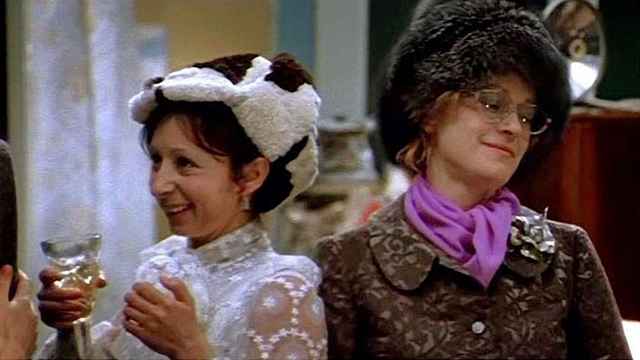NEW YORK — Wladimir Klitschko vividly remembers the day his older brother Vitali introduced him to boxing.
“He hit me so hard I saw stars,” Wladimir recalled. “I thought, ‘This is not for me.’”
He was wrong. Wladimir followed Vitali into the sport, and both Ukrainian giants became champions. They’re the first siblings to hold heavyweight titles at the same time. They’re also the first boxing champions with doctorates in sports science and fluency in four languages.
Their improbable story is told in “Klitschko,” a documentary playing this week at New York’s Tribeca Film Festival. The film will be released this fall in the United States.
Sons of a Soviet Air Force officer who helped clean up Chernobyl after the 1986 nuclear plant disaster, the Klitschkos have dominated the heavyweight division for the past decade.
Wladimir, 35, is currently recognized as champion by four boxing authorities — the IBF, WBO, IBO and The Ring magazine. Vitali, 39, holds the WBC title belt. The brothers have turned down lucrative offers to fight each other, fulfilling a promise they made to their mother.
“I wouldn’t do it, even for $1 billion,” Wladimir said, stretching out his 6-foot-6 frame (198 centimeters) — one inch shorter than his brother — on a sofa in the lobby of a plush Manhattan hotel. “You can’t put a price on your mother’s heart.”
Some boxing experts accused Wladimir of having no heart — and no chin — after he was pummeled by Corrie Sanders and Lamon Brewster over a 13-month span in 2003-04. But he’s won 13 straight bouts since then, including a rematch against Brewster.
“I was very motivated to prove that my critics were wrong,” Wladimir said. “I always believed in myself, even when others didn’t. I think that’s the message of the film: When you get knocked down in life, you need to get up and keep going.”
He and his brother learned that lesson from their father, who was stricken with cancer after being exposed to radiation at Chernobyl. (The senior Klitschko survived, but still has related health problems.) The recent nuclear crisis in Japan reminded Wladimir of the Chernobyl tragedy a quarter-century ago.
“This is a problem all over the world,” said Wladimir, who speaks Ukrainian, Russian, German and English. “These nuclear plants are more dangerous than people realize.”
Both brothers will be in the spotlight when they defend their titles later this year. Wladimir is scheduled to fight WBA champion David Haye on July 2 in Hamburg, Germany, while Vitali is set to meet Tomasz Adamek on Sept. 10 in Wroclaw, Poland.
When one brother fights, the other is always there to lend support.
“From a psychological view, the opponent is fighting both of us,” Wladimir said. “When he looks in the corner, he sees two faces and four eyes.”
Though they won’t fight each other, the brothers are fierce competitors in other activities, including chess.
“No matter what we’re doing, we both want to win,” Wladimir said. “It can get very intense when we are competing.”
A Message from The Moscow Times:
Dear readers,
We are facing unprecedented challenges. Russia's Prosecutor General's Office has designated The Moscow Times as an "undesirable" organization, criminalizing our work and putting our staff at risk of prosecution. This follows our earlier unjust labeling as a "foreign agent."
These actions are direct attempts to silence independent journalism in Russia. The authorities claim our work "discredits the decisions of the Russian leadership." We see things differently: we strive to provide accurate, unbiased reporting on Russia.
We, the journalists of The Moscow Times, refuse to be silenced. But to continue our work, we need your help.
Your support, no matter how small, makes a world of difference. If you can, please support us monthly starting from just $2. It's quick to set up, and every contribution makes a significant impact.
By supporting The Moscow Times, you're defending open, independent journalism in the face of repression. Thank you for standing with us.
Remind me later.





